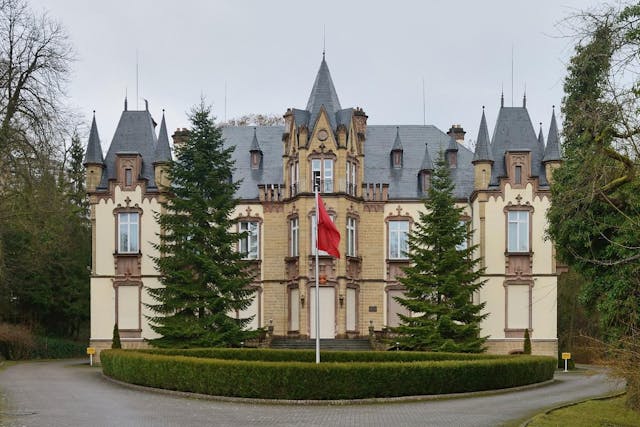Highlights for the week of January 22-28

Фото: Peter Wendt, Unsplash
France has been hit by another wave of protests. This time, farmers are on strike, accusing the government of worsening working conditions. A 4-day work week is being piloted in neighboring Germany. At the same time, LinkedIn publishes information about the most in-demand jobs in the European Union.
Paris Blockaded
French farmers have been on strike for weeks against the abolition of state subsidies for diesel fuel and other benefits. In addition to one-off actions in the regions, the unions have united workers in the industry in a full-scale wave of protest that has moved toward the capital.
After the blockade of several highways at the end of the week, it seemed that the country's Prime Minister, Gabriel Attal, was ready to solve all the problems. At least he announced that the subsidy reform would be abandoned, thus preserving the benefits due to the farmers. But this did not stop the unions from raging. Yes, they considered the politician's statements to be the first important step toward solving the problem, but they noted that the minister had not heard all of the protesters' complaints and demands. Therefore, the farmers are ready to completely blockade the capital from Monday, cutting off the supply routes to the city and neighboring regions.
France is the largest agricultural producer in the European Union. The protests here were a continuation of a trend that had already been seen in Poland and Germany. This happened six months before the European elections, in which right-wing movements, for which farmers are one of the most popular voters, are strengthening their positions.
Short week in Germany
The 4-day workweek pilot project will begin on February 1. Forty-five companies will participate in the experiment. Their employees will get an extra day off with full pay. The purpose of such a test is to test the theory that reducing the workload will increase employee productivity.
There has been talk for a long time about introducing 4 days instead of the usual 5. Many studies support one side or the other — proponents and opponents of a shorter week. However, the main argument from researchers in favor of the change remains that having more free time while maintaining well-being has a positive impact on employees' mental health, motivation and, consequently, productivity.
The experiment will last six months, and it is difficult to say how the results will affect legislation. However, the fact that working people want change is shown by the increasing number of strikes. One does not have to go far for an example: we have already written about the protests of the German railway workers, who are demanding that the working week be shortened by 3 hours and that their wages remain unchanged.
As for Luxembourg, the issue of reduction is also being discussed here, but there is a lot of disagreement among the parties. We have already written about the different visions of certain politicians. The new government of Luc Frieden has not yet commented on the concept.
Europe needs AI and cybersecurity experts
This is what LinkedIn analysts concluded after studying trends and predictions for the year 2024. And experts have noticed that specialties that simply did not exist 20 years ago have become in demand.
This is a natural phenomenon, because as technologies develop, so do the people who need to support and develop them. In recent years, there has been a noticeable growth in the areas of artificial intelligence, sustainable development, and business development.
Another interesting trend is the need for new skills. Today, even high-level professionals in their industry need to acquire new skills to meet the expectations of employers and the market.
Cybersecurity analyst and AI engineer were among the top 5 job vacancies across the EU. At the same time, the statistics vary slightly from country to country. For example, sustainability managers are most in demand in Germany, financial advisor in Switzerland, and sales managers in France.
Read more





